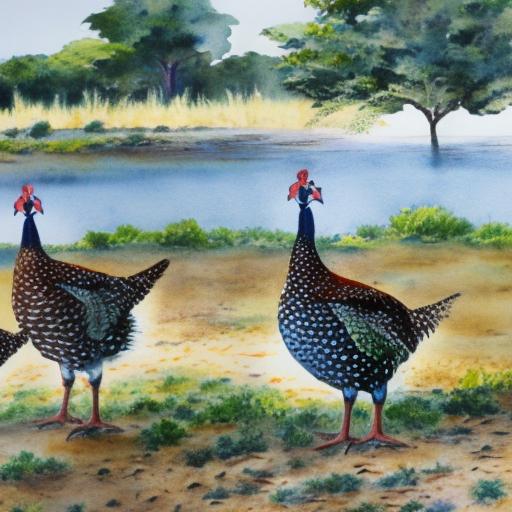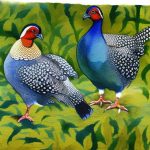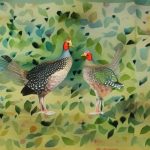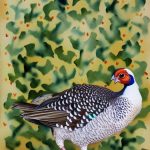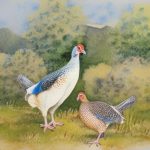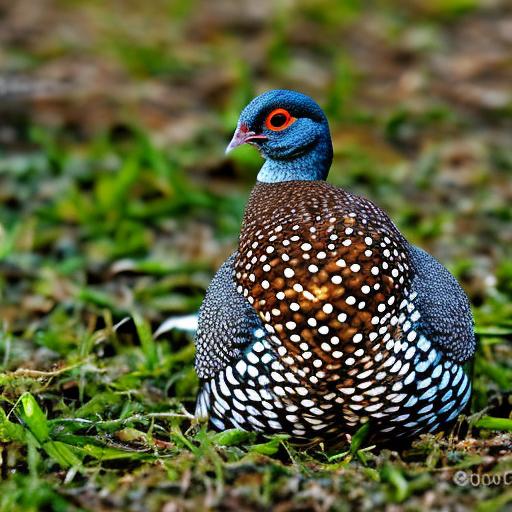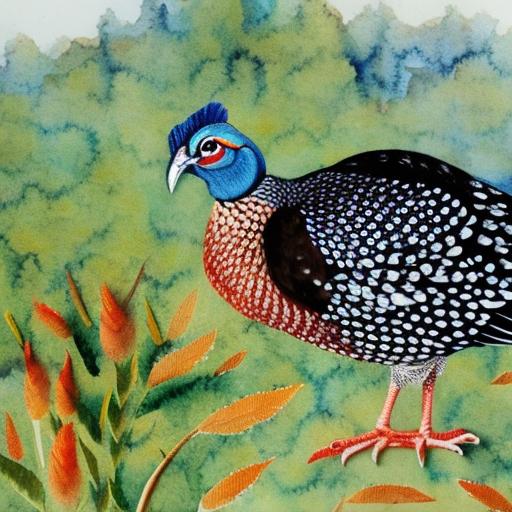Guinea fowl breeding in Kenya has gained popularity in recent years due to the high demand for guinea fowl meat and eggs. Guinea fowl are known for their lean and flavorful meat, making them a sought-after choice for many consumers. Additionally, guinea fowl eggs are also in demand for their rich flavor and nutritional value. As a result, many farmers in Kenya are turning to guinea fowl breeding as a profitable venture.
Guinea fowl are hardy birds that are well-suited to the Kenyan climate, making them relatively easy to raise. They are also excellent foragers, which means they can help control pests and insects on the farm. However, successful guinea fowl breeding requires careful attention to breeding stock selection, suitable breeding environments, proper feeding and nutrition, effective breeding and hatching management, as well as health and disease management. In this article, we will explore each of these aspects in detail to provide a comprehensive guide for those interested in guinea fowl breeding in Kenya.
Key Takeaways
- Guinea fowl breeding is gaining popularity in Kenya due to the high demand for their meat and eggs.
- Select breeding stock with good genetics, strong immune systems, and high fertility to ensure successful breeding.
- Create a suitable breeding environment with adequate space, shelter, and nesting areas to promote natural mating and egg laying.
- Provide a balanced diet rich in protein, vitamins, and minerals to ensure the health and productivity of the guinea fowl.
- Monitor breeding and hatching closely, provide proper care to the chicks, and implement biosecurity measures to prevent disease outbreaks.
Selecting the Right Breeding Stock
Selecting the right breeding stock is crucial for successful guinea fowl breeding. When choosing breeding stock, it is important to select birds that are healthy, vigorous, and free from genetic defects. Look for birds that are active, alert, and have good body conformation. It is also important to consider the age of the birds, as younger birds are generally more fertile and productive.
When selecting breeding stock, it is also important to consider the genetic diversity of the birds. Inbreeding can lead to genetic abnormalities and reduced fertility, so it is important to avoid mating closely related birds. It is recommended to start with a small flock of unrelated birds to ensure genetic diversity and avoid inbreeding.
In addition to genetic considerations, it is also important to consider the temperament of the birds. Guinea fowl can be quite aggressive, especially during the breeding season, so it is important to select birds that are not overly aggressive towards each other. By carefully selecting the right breeding stock, farmers can ensure the success of their guinea fowl breeding program and produce healthy and productive birds.
Setting Up a Suitable Breeding Environment
Creating a suitable breeding environment is essential for successful guinea fowl breeding. Guinea fowl are ground-nesting birds, so they require a secure and comfortable nesting area. Provide nesting boxes or sheltered areas with soft bedding material for the hens to lay their eggs. It is important to provide enough nesting space to prevent overcrowding and reduce the risk of egg breakage.
Guinea fowl also require access to outdoor space for foraging and exercise. Provide a large outdoor area with plenty of grass and vegetation for the birds to roam and forage for insects and seeds. Fencing is essential to protect the birds from predators and to prevent them from wandering off the farm.
In addition to outdoor space, it is important to provide suitable housing for the birds. Guinea fowl require shelter from the elements and protection from predators. Provide a secure coop or housing structure that is well-ventilated and provides protection from extreme temperatures and inclement weather.
Finally, it is important to provide suitable roosting areas for the birds. Guinea fowl prefer to roost off the ground, so provide elevated roosting areas in the coop or shelter. By creating a suitable breeding environment, farmers can ensure the health and well-being of their guinea fowl and promote successful breeding and egg production.
Feeding and Nutrition for Guinea Fowl
Proper feeding and nutrition are essential for the health and productivity of guinea fowl. Guinea fowl are omnivorous birds that require a balanced diet of grains, seeds, insects, and vegetation. Provide a high-quality commercial poultry feed that is specifically formulated for guinea fowl. Additionally, supplement the birds’ diet with fresh fruits and vegetables, as well as access to forage for insects and seeds.
It is important to provide access to clean, fresh water at all times. Guinea fowl are active birds that require plenty of water for drinking and bathing. Ensure that water sources are easily accessible and regularly cleaned and refilled to prevent contamination.
In addition to a balanced diet, it is important to provide access to grit or small stones for the birds. Guinea fowl do not have teeth and require grit in their gizzards to help grind up food for digestion. Provide a separate container of grit or scatter it in the outdoor foraging area for the birds to pick up as needed.
Finally, it is important to monitor the body condition of the birds and adjust their diet as needed. Overfeeding can lead to obesity and reduced egg production, while underfeeding can lead to poor growth and development. By providing a balanced diet and monitoring the nutritional needs of the birds, farmers can ensure the health and productivity of their guinea fowl flock.
Managing Breeding and Hatching
Managing breeding and hatching is an important aspect of guinea fowl breeding. Guinea fowl are seasonal breeders that typically begin laying eggs in the spring. It is important to provide suitable nesting areas for the hens to lay their eggs and ensure that eggs are collected regularly to prevent them from being damaged or eaten by predators.
Once eggs are collected, they can be placed in an incubator or under a broody hen for hatching. Guinea fowl eggs require specific incubation conditions, including high humidity and regular turning, so it is important to carefully monitor the incubation process to ensure successful hatching.
When hatching under a broody hen, it is important to provide a quiet and secure area for the hen and her chicks. Guinea fowl chicks are precocial, which means they are able to feed themselves shortly after hatching, but they still require protection from predators and access to heat sources.
It is important to monitor the health and development of the chicks closely during the hatching process. Provide access to chick starter feed and clean water as soon as the chicks hatch, and ensure that they are kept warm and protected from drafts.
By carefully managing the breeding and hatching process, farmers can ensure successful reproduction and healthy chick development in their guinea fowl flock.
Health and Disease Management

Health and disease management are crucial aspects of guinea fowl breeding. Guinea fowl are generally hardy birds, but they can be susceptible to certain diseases and parasites. It is important to monitor the health of the birds regularly and seek veterinary care if any signs of illness or disease are observed.
Provide regular vaccinations and deworming treatments as recommended by a veterinarian to prevent common diseases and parasites. Additionally, practice good biosecurity measures to prevent the introduction of diseases onto the farm.
It is also important to provide a clean and sanitary living environment for the birds. Regularly clean and disinfect housing areas, nesting boxes, feeders, and waterers to prevent the spread of disease-causing pathogens.
Finally, it is important to provide access to suitable dust bathing areas for the birds. Guinea fowl regularly dust bathe to keep their feathers clean and free from parasites. Provide a shallow area of dry soil or sand for the birds to dust bathe in regularly.
By practicing good health and disease management practices, farmers can ensure the overall health and well-being of their guinea fowl flock and promote successful breeding and production.
Marketing and Selling Guinea Fowl Products
Marketing and selling guinea fowl products is an important aspect of guinea fowl breeding in Kenya. There is a growing demand for guinea fowl meat and eggs due to their unique flavor and nutritional value. Farmers can market their products directly to consumers through farmers’ markets, local food co-ops, or online sales platforms.
Additionally, there may be opportunities to sell guinea fowl products to restaurants, specialty food stores, or other retail outlets that cater to consumers looking for high-quality, locally sourced poultry products.
When marketing guinea fowl products, it is important to highlight the unique qualities of guinea fowl meat and eggs, such as their lean texture, rich flavor, and nutritional benefits. Consider offering value-added products such as marinated cuts of meat or specialty egg products to appeal to a wider range of consumers.
It is also important to consider packaging and labeling requirements when selling guinea fowl products. Ensure that products are properly labeled with information about the farm where they were produced, as well as any relevant nutritional information or cooking instructions.
By effectively marketing and selling guinea fowl products, farmers can capitalize on the growing demand for these unique poultry products and build a successful business around guinea fowl breeding in Kenya.
In conclusion, guinea fowl breeding in Kenya offers an exciting opportunity for farmers looking to diversify their poultry operations and capitalize on the growing demand for guinea fowl meat and eggs. By carefully selecting the right breeding stock, creating a suitable breeding environment, providing proper feeding and nutrition, managing breeding and hatching effectively, practicing good health and disease management, as well as marketing and selling guinea fowl products strategically, farmers can build a successful guinea fowl breeding business in Kenya. With careful attention to these key aspects of guinea fowl breeding, farmers can ensure the health and productivity of their flock while meeting the demand for high-quality guinea fowl products in the market.
If you’re interested in guinea fowl breeding in Kenya, you may also want to explore the topic of chicken breeding. Poultry Wizard has a helpful article on “How Many Chickens Do You Need for a Family of 4?” which provides valuable insights into the practical aspects of raising chickens for a family. You can find the article here.
FAQs
What is guinea fowl breeding?
Guinea fowl breeding is the process of raising guinea fowl for their meat, eggs, and pest control abilities. It involves providing proper housing, nutrition, and care for the birds to ensure their health and productivity.
Why breed guinea fowl in Kenya?
Guinea fowl are well-suited to the Kenyan climate and can thrive in a variety of conditions. They are also valued for their ability to control pests and insects, making them a valuable addition to smallholder farms.
What are the benefits of guinea fowl breeding in Kenya?
Breeding guinea fowl in Kenya can provide a source of income through the sale of meat and eggs. Additionally, their pest control abilities can help reduce the need for chemical pesticides on farms.
What are the challenges of guinea fowl breeding in Kenya?
Challenges of guinea fowl breeding in Kenya may include predation, disease, and the need for proper housing and nutrition. Additionally, marketing and selling guinea fowl products may present challenges for small-scale farmers.
What are the key considerations for guinea fowl breeding in Kenya?
Key considerations for guinea fowl breeding in Kenya include providing proper housing, nutrition, and care for the birds. Farmers should also consider the market demand for guinea fowl products and potential predators in their area.
Meet Walter, the feathered-friend fanatic of Florida! Nestled in the sunshine state, Walter struts through life with his feathered companions, clucking his way to happiness. With a coop that’s fancier than a five-star hotel, he’s the Don Juan of the chicken world. When he’s not teaching his hens to do the cha-cha, you’ll find him in a heated debate with his prized rooster, Sir Clucks-a-Lot. Walter’s poultry passion is no yolk; he’s the sunny-side-up guy you never knew you needed in your flock of friends!

